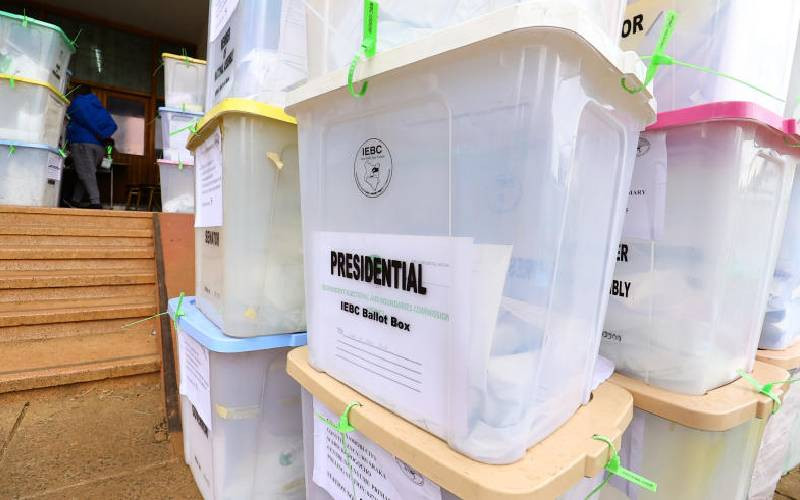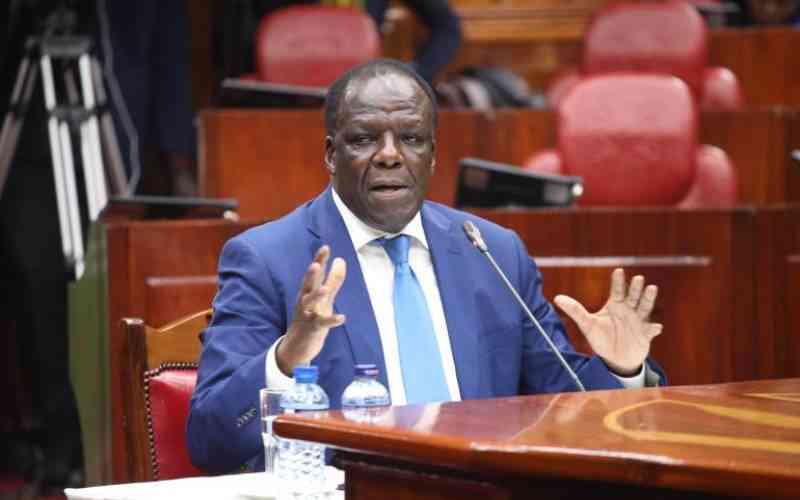
As Kenya approaches its pivotal 2027 General Election, Artificial Intelligence is poised to play a transformative role in the democratic process for better or worse.
While AI holds potential to enhance electoral transparency, improve voter engagement and streamline operations at IEBC, it also presents threats, including rapid spread of deep fakes and automated influence campaigns that could fundamentally undermine trust and electoral legitimacy.
Kenya is a uniquely fertile ground for the growing influence of AI. The country has an internet penetration rate of approximately 48 per cent, equating to over 27.4 million active internet users. More significantly, Kenya’s population is youthful, with approximately 40 per cent of registered voters aged 18 to 34. This demographic, highly active on social media platforms, is the primary target for AI-driven political messaging. When applied responsibly, AI can enhance efficiency and transparency of elections. The IEBC has already acknowledged this potential. Firstly, AI-powered biometric verification systems can enhance credibility of the voter register.
These systems use fingerprint and facial recognition technologies to help eliminate duplicate registrations and reduce errors that have plagued voter rolls, minimising eligibility disputes. Secondly, AI can assist in election monitoring by analysing live feeds or data from polling stations to instantly detect irregularities such as ballot stuffing or voter intimidation, providing rapid, auditable alerts to the IEBC.
AI also offers unprecedented opportunities for inclusive civic education. Chatbots and virtual assistants can deliver voting information in local languages, targeting remote voters often left behind in traditional outreach campaigns. This is particularly vital given the stark digital divide: while internet penetration in Nairobi County is 64.7 per cent, marginalised counties like West Pokot and Turkana report usage rates as low as 9.1 and 12.7 per cent, respectively.
Globally, several countries have explored such AI applications. Nigeria’s Independent National Electoral Commission has established an AI division for smarter, more transparent elections. Similarly, the EU is using AI to monitor digital political advertising, with legal frameworks requiring disclosures on AI microtargeted ads.
However, the same AI tools that can democratise access to information can be weaponised to mislead and manipulate. Deep fakes, highly realistic but fake videos, are increasingly easy to produce. With approximately 15.1 million Kenyans aged 18 and above active on social media, fabricated content can quickly go viral, distorting facts and exacerbating ethnic or political tensions. The risk is amplified by Kenyans’ high level of engagement; on average, users spend 4 hours and 13 minutes daily on social media one of the highest rates globally. This provides ample time for exposure to coordinated, deceptive content. Examples from other nations are stark: in the 2023 Slovak parliamentary elections, a deep fake audio clip falsely portraying a candidate discussing rigging plans emerged just days before voting, sparking widespread mistrust.
To counter these threats, Kenya must prioritise legislative and technological measures. Kenya’s draft National Artificial Intelligence Strategy (2025–2030) proposes crucial steps, including mandatory disclosures for AI generated political content, transparency in digital political advertising, and real time fact checking mechanisms.
Addressing the challenges AI poses to democracy requires collective action. The IEBC, civil society, media, and technology firms must coordinate to safeguard electoral integrity. Tech companies should invest in AI driven content moderation tools tailored to Kenya’s unique political and cultural context.
-The writer comments on topical issues







